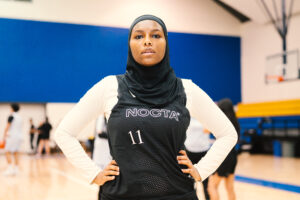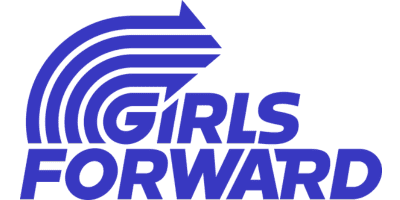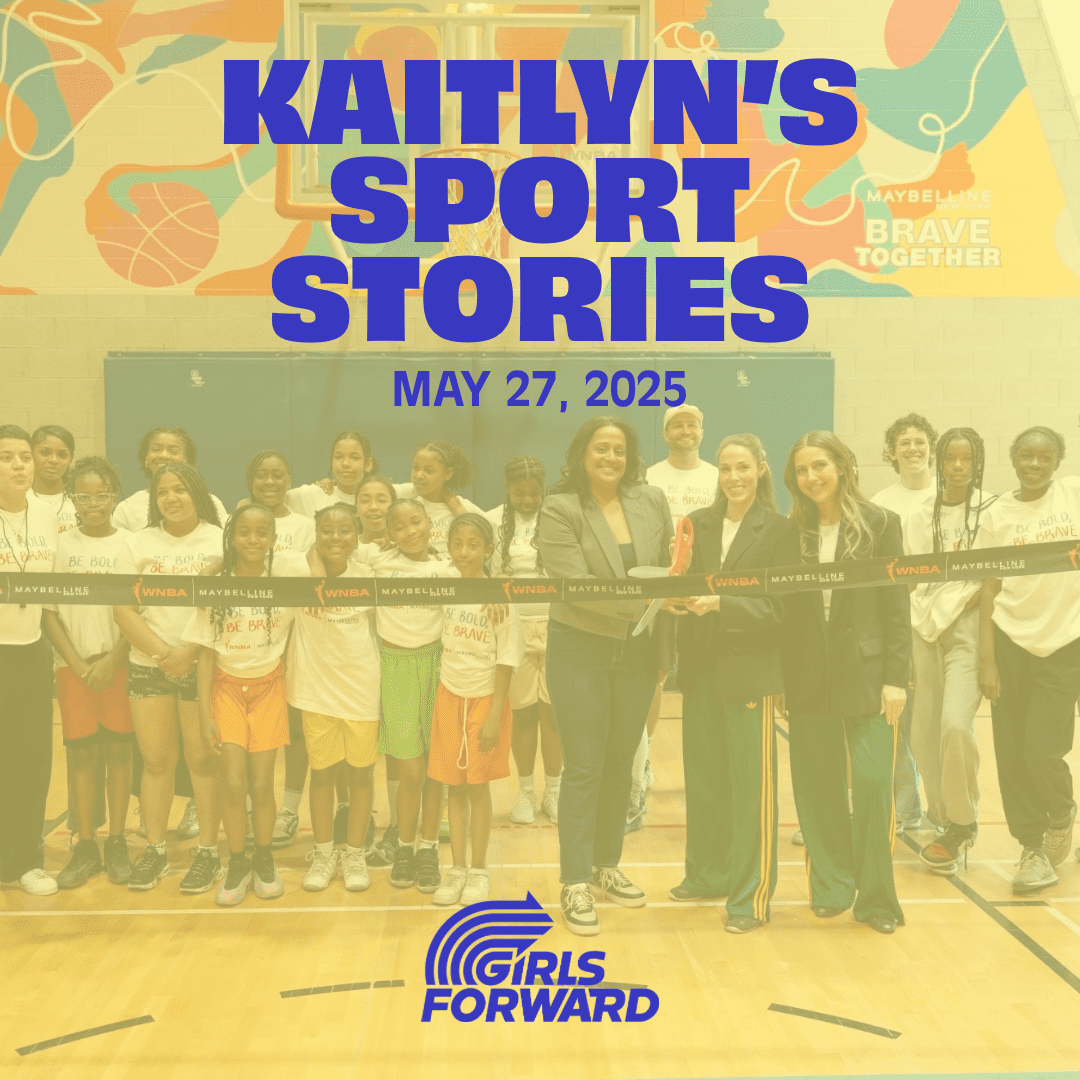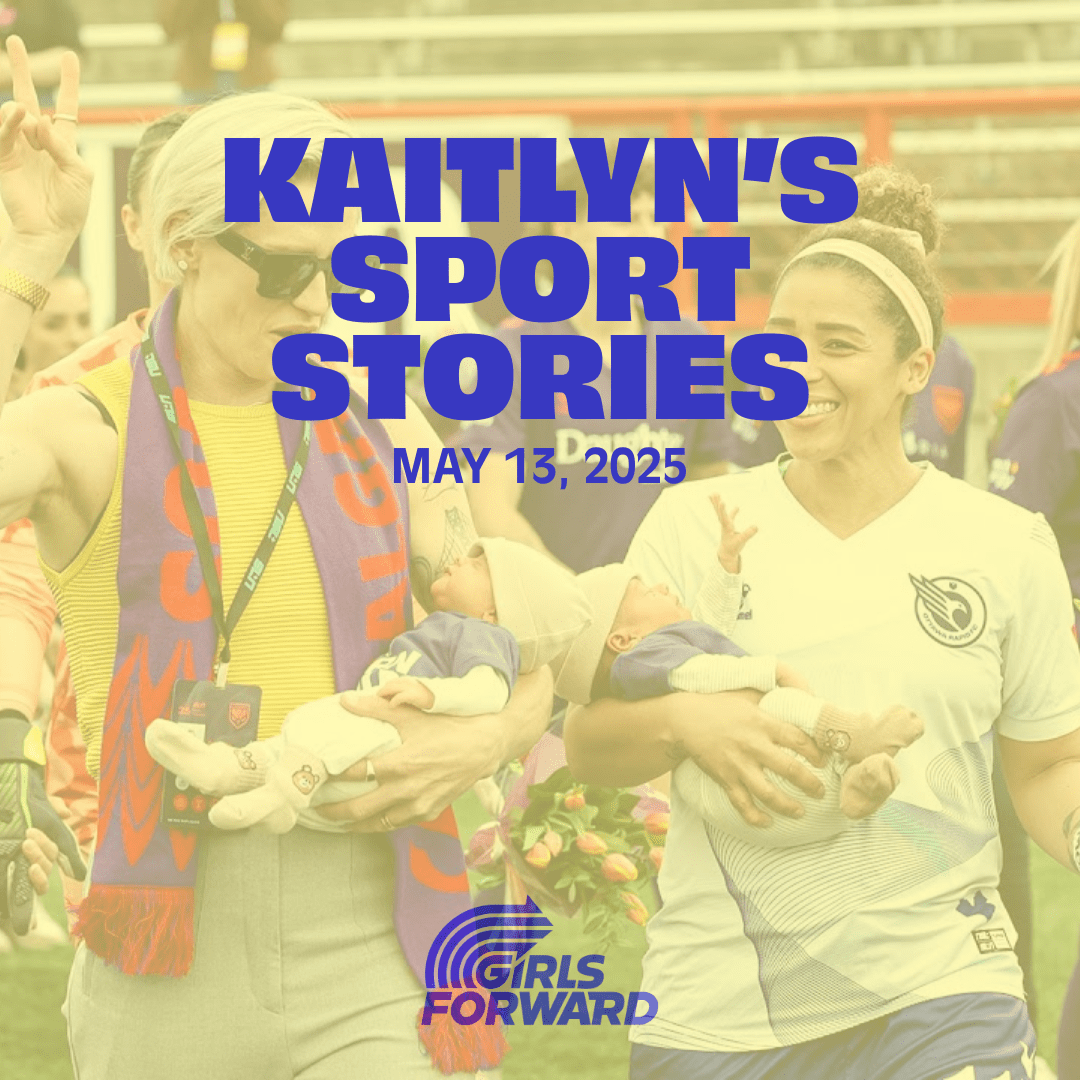In this edition, we catch up on the Toronto Tempo's in-person fan festival and the…

CREATING SPACE FOR MUSLIM WOMEN IN SPORT. MEET FITRIYA MOHAMED!
 We are thrilled to announce the return of our blog series, Breaking Barriers: Women Who Lead. Throughout 2025, we will highlight various women leaders who advocate for gender equity, believe in the power of sport, and continue to support and amplify the need to get more girls in sport and physical activity. They are women who broke down barriers (and continue to do so), are leaders in their fields, and who hope to leave an impact on their sectors. We’re so excited for our series to return by chatting with Fitriya Mohamed, BSM, MA, Founder and Executive Director of the Muslim Women’s Summer Basketball League, mentor, and activist for Muslim women in sport.
We are thrilled to announce the return of our blog series, Breaking Barriers: Women Who Lead. Throughout 2025, we will highlight various women leaders who advocate for gender equity, believe in the power of sport, and continue to support and amplify the need to get more girls in sport and physical activity. They are women who broke down barriers (and continue to do so), are leaders in their fields, and who hope to leave an impact on their sectors. We’re so excited for our series to return by chatting with Fitriya Mohamed, BSM, MA, Founder and Executive Director of the Muslim Women’s Summer Basketball League, mentor, and activist for Muslim women in sport.
MAKING SPACE FOR MUSLIM WOMEN IN SPORT. Fitriya’S JOURNEY AS A MUSLIM WOMEN’S BASKETBALL LEAGUE FOUNDER, MENTOR, AND scholar
When Fitriya Mohamed looks at the landscape of women’s sport in Canada, she sees more than just players and teams. She sees culture, community, and untapped potential. Most of all, she sees possibility: for young Muslim girls who never imagined they could belong in these spaces.
 “I consider myself an activist for Muslim women in sport,” she says. “We provide basketball programming throughout the year, from a summer league to skills clinics to storytelling, to provide that sense of representation.”
“I consider myself an activist for Muslim women in sport,” she says. “We provide basketball programming throughout the year, from a summer league to skills clinics to storytelling, to provide that sense of representation.”
Fitriya has already made history. A national award-winning documentary (Fitriya: Muslim On and Off the Court). Recognition from major institutions like the Olympics and Sportsnet. Features in campaigns with Nike, Hershey’s Canada, and the Toronto Raptors. Her face even appears in a children’s book, so kids growing up can see someone like themselves represented in sport.
“I never saw this growing up,” she says. “If I had, imagine how far I would have gone with the sports that I love.” That’s why she’s so focused on normalizing Muslim women in sport. Because once it’s normalized, it’s no longer a headline, it’s just part of life.
Raised in a household where education was non-negotiable, her mother’s message was clear: “If you’re not going to school, you cannot live under my roof.” At the time, it felt like a strict rule.
Now, Fitriya sees it differently. “I’m so grateful for that,” she says. “A lot of the time it’s not about what you learn in class. It’s what you do with those assignments to grow on a whole different level.”
Fitriya was the first in her family to pursue post-secondary education. That transition came with growing pains. “Just moving away from home, going to Brock University, living alone…there’s so much going on.” But she didn’t give up. She leaned on every resource-time management workshops, mentorships-and eventually, she thrived.
 Then came the Master’s: a thesis-based program that pushed her to her limits where she focused on Muslim female athletes’ advocacy and activist initiatives in sport. “It’s a whole different kind of lonely,” she says. “You’re constantly questioning yourself. And with a thesis, you can’t just wing it. You have to get it right.”
Then came the Master’s: a thesis-based program that pushed her to her limits where she focused on Muslim female athletes’ advocacy and activist initiatives in sport. “It’s a whole different kind of lonely,” she says. “You’re constantly questioning yourself. And with a thesis, you can’t just wing it. You have to get it right.”
What kept her grounded was knowing that her academic work wasn’t just theoretical; it reflected the real-life work she was doing. Two things kept her going: the community she served, and the belief that her work mattered. “There were days I didn’t want to write, and then I’d go to our summer league on the weekend and be reminded why it all mattered. I couldn’t walk away from that. That work wasn’t just for me—it was for us.”
“So in terms of education,” she adds, “I vouch for it. Not everyone has access, but I encourage everyone to do it. Once you stop learning, your mind starts to close off.”
“Once you stop learning, your mind starts to close off.”
She also found strength in sisterhood. “Amreen Kadwa and I (Founder and Executive Director of Hijabi Ballers) just knew each other on a deeper level. It was easy to say ‘We want to do that. Bet. Let’s get into it’,” she says. “There’s so much that goes into it behind the scenes, and just having so many volunteers who see the vision-it looked so beautiful. Shout out to the sisterhood.”
That sisterhood is the backbone of the work: grassroots programs that aren’t just about sport, but about belonging. About creating a generation of confident, healthy, and empowered young women.
“When girls are physically active, their confidence goes up. Mentally, physically, they’re just feeling good,” she says.
Now, she’s watching the next wave come forward. “I’ve been honoured with these opportunities, and I’m excited to see the impact on young girls… to see them go further with their career, see them on a WNBA team, or representing Canada nationally.”
“Shout out to the sisterhood.”
Still, the work isn’t easy. Fitriya is candid about one of the biggest hurdles.
“Funding,” she says, without hesitation. “Being an organizer in the non-profit sports world… we’re running these programs and making it work somehow.”
 She’s also cautious of surface-level representation. “They want you in campaigns and all these things. But are you supporting the organization that you’re spotlighting?”
She’s also cautious of surface-level representation. “They want you in campaigns and all these things. But are you supporting the organization that you’re spotlighting?”
It’s a tension she continues to navigate: being visible while demanding meaningful, structural support. Because at the end of the day, this isn’t just about visibility; it’s about sustainability.
For now, she’s staying focused. Because this work-representation, empowerment, and visibility–it’s not a trend for her. It’s her life’s purpose.
“And because we love the work so much,” she says, “we’re willing to do whatever it takes.”
“Because we love the work so much, we’re willing to do whatever it takes.”
Our Breaking Barriers: Women Who Lead blog series highlights women in leadership positions who are passionate about empowering girls through sport, physical activity and education. Launched in January 2025, the series will highlight various women throughout 2025. If you are interested in learning more or supporting this series, please email us at info@girlsforward.ca



